What Are Your Thoughts On The Ending Of The Green Knight? Little Disappointed With It.
What are your thoughts on the ending of the green knight? Little disappointed with it.
Ahhh thank you, my anonymous hero, for giving me the opportunity to ramble about this movie. I saw it last night and I’ve been thinking about it pretty nonstop. Disclaimer before I get into this: I’m not a proper medievalist. I am, however, an English student with a focus on British literature, so I’ve read a few different translations of the original source material and studied it fairly in-depth.
That being said, my first reaction to The Green Knight was… well, that it’s not really Sir Gawain and the Green Knight. Which is fine! Mostly. Every movie adaptation changes things from the source, but this one changed so much, so drastically, that I can’t really think about it as the same story. In the original poem, Gawain is a good (if inexperienced) knight who consistently keeps his promises and retains his honor right up until the very end of the story, when he lies about the green belt and refuses to give it to his host, Bertilak. The storyline of the movie seems to flip this? Gawain doesn’t start off as a good knight, or even as a knight at all, and in the movie he consistently fails to live up to knightly virtues throughout his quest. However, at the end he succeeds where the original Gawain did not, and voluntarily removes the belt (after that memorable flash-forward sequence).
To me, this is a fundamentally different story from the original. And I’m not mad about the character changes! A movie has to create a self-contained character arc in a way that the anonymous Pearl Poet did not have to. So to me, the movie seems to present the story of someone who must learn to accept death. Death (and rebirth) is certainly a major theme in the original, too, but I’ve always interpreted the og poem as placing more importance on honesty, chivalry, chastity, humility, and shame.
So the movie is telling a different story, with different themes. With that in mind, I guess it could make sense to skim over the 3 days of Christmas games and the kissing exchange in the original poem. However, even if it does make sense, I’m mad about it because I really liked the Christmas games and the kissing exchange in the original poem. I would’ve swapped out Gawain’s existential flash-forward sequence for a few good kissing exchanges in a heartbeat.
That being said, with the story the movie seems to be trying to tell I’m not terribly mad at the ending? Maybe? I’m still conflicted. I suppose the problem is that the themes feel very confused to me. The strongest one I can latch onto is the inevitability of death/ the importance of embracing the natural cycle of the world. With that in mind, Gawain’s vision of the future could be his realization that his life will, eventually, end, no matter what he does in the green chapel. His decision to remove the belt and face the green knight without its protection can then be seen as an acceptance of death, and the decision to die with honor and dignity. I’m not unhappy with where his character arc ends up here, considering he’s been framed as a screw-up since the beginning of the movie, but I’m left repeating #notmygawain because this is, again, a fundamentally different character arc from the original story. Again, I understand why they changed Gawain’s character for a movie. I just don’t like the changes very much.
I’m also not a huge fan of the cliffhanger (although I did love the final “Green Knight” title card!) mostly because all elements of cliffhanger are removed if you’ve actually read the original poem (or even just checked Wikipedia). Like, we know that the knight doesn’t kill Gawain. It’s not a new story. Although? I suppose this version of it is. So who’s to say whether he dies or not? I suppose the cliffhanger could work in the context of this adaption because, if we’re going with the ‘accepting death’ theme (which I’m still not sure about!), the outcome of Gawain’s decision doesn’t matter as much as the decision itself. We’ve seen him drift around the kingdom for almost 2 hours, breaking chivalric code, lying to his host, and overall being a pretty self-absorbed knight who’s terrified of his own mortality. The decision to accept death and embrace honor is the culmination of a character arc and seems like a fitting end to the movie. But I do wish we had gotten to see Gawain work more towards this growth through the events of his quest, rather than simply achieve it through a flash forward in time.
And I still think they should have left in the full three days of Christmas games.
Overall? This adaption was beautiful. Dev Patel is hot. And, more importantly (to me), this adaption felt right. The blending of Catholic imagery with pagan Celtic influences, the weird vibes, the use of title cards and the vaguely disconnected adventures was fun, and it felt more “Arthurian” than any other round-table-related movie I’ve ever watched. But I’m still not entirely sure what the story was trying to say, or if it said it. If you’re going to deviate from the source material this much, it’s my opinion that you’ve got to do it for a clear reason, to make a clear point, not just to subvert audience expectation. I’m not quite sure what the point of these changes were, or how the ending of the movie revealed the movie’s core thesis. It felt a bit more like a “gotcha!” from the director than a genuine end to Gawain’s story.
But, I mean, at least Dev Patel was hot.
More Posts from Melancholianarcissus and Others










Dreamy Parisian penthouse apartment
I don’t wanna sound kinky but I wanna lie on some wet gr*en moss with y*u while you’re t*lking about Mary Sh*lley.
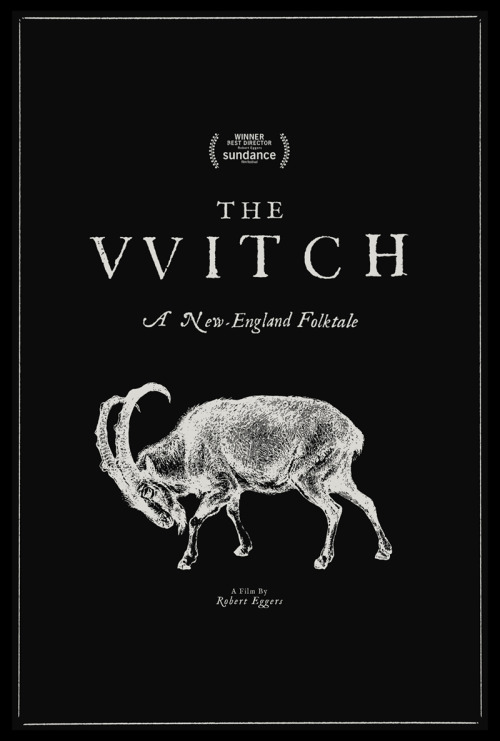
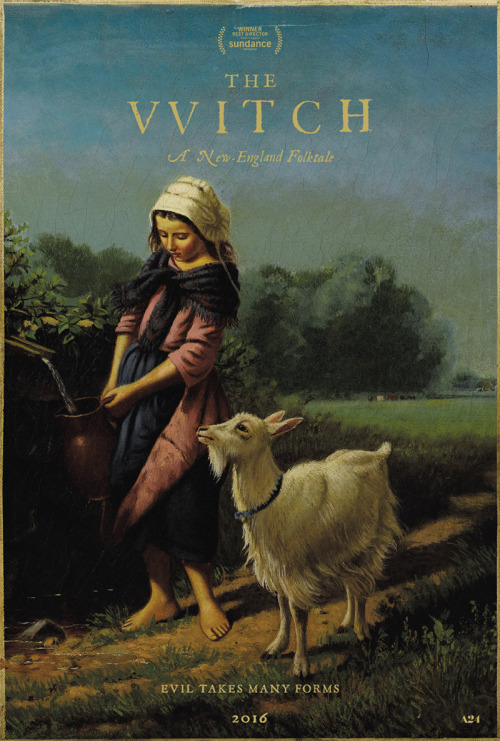
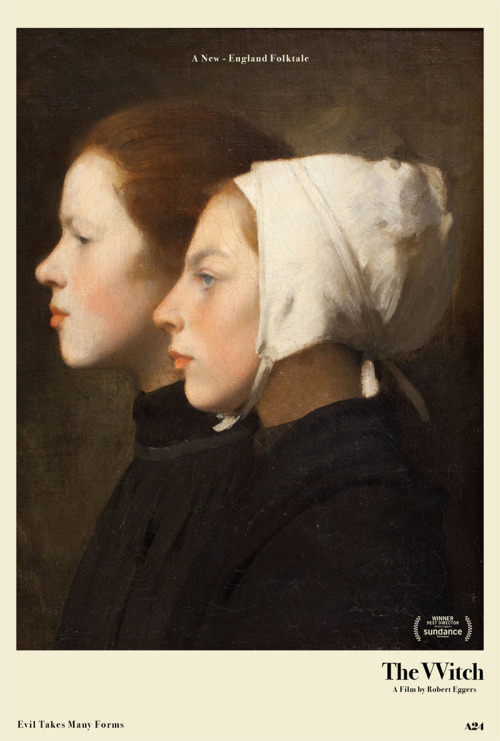
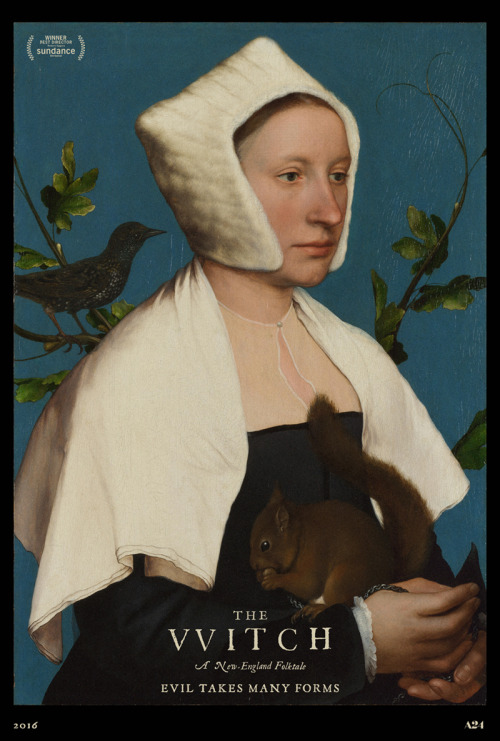

Film posters for Robert Eggers’ The Witch by Midnight Marauder.
Dark academic media because it’s autumn
Films
• Harry Potter: boarding school, magic, cozy
• Dead Poet Society: boarding school, forlorn, rich
• Twilight: bitter, terrible, autumn-y (mock it loudly whilst watching to make it worth while)
• Good Will Hunting: deep, cerebral, engaging
• A Midsummer Night’s Dream: classic, dreamy
• The Spiderwick Chronicles: monsters, childhood
• The Black Cauldron: disney classic, creepy, fun
• Kill Your Darlings: Murder, university, morality
• Hocus Pocus: witchy, nostalgic, light-hearted
• Coraline: trippy, weird, childlike, buzzing
• The Corpse Bride: drab, gentle, strange
• Dorian Gray: rich, ben barnes, terrible mentors
• Sleepy Hollow: grim, ghostly, casually haunting
• Crimson Peak: creepy, strange, dim, opulent
Shows
• The Queen’s Gambit: intelligent, new, riveting
• Peaky Blinders: dark, illegal 1910s shenanigans
• Sherlock Holmes (BBC): cerebral, mystery, witty
• Gilmore Girls: nostalgic, private school, literature
• Criminal Minds: mystery, crime, casual viewing
• Sabrina the Teenage Witch: nostalgic, light, witchy
• Scooby Doo Where Are You?: cozy, mystery, kids
• The Haunting of Bly Manor: dark, creepy, engaging
Books and short stories
• The Secret History: university, murder, morality
• Jane Eyre: classic, ghostly, romanticism
• Frankenstein: classic, gothic, sci-fi, morality
• Dracula: classic, gothic, horror
• Stalking Jack the Ripper: gothic, horror, victorian
• Sherlock Holmes: classic, mystery, cozy
• Ninth House: horror, necromancy, morality
• The Yellow Wallpaper: psychologically haunting, short story, morality
• Murder on the Orient Express: classic, mystery, whodunit
• Harry Potter: cozy, magic, boarding school
• The Night Circus: whimsical, magic, romance
• A Deadly Education: boarding school, magic, horror
• Rebecca: psychological, morality, relationships
• Crime and Punishment: classic, heavy, morality
• War and Peace: classic, opulent, heavy
Podcasts
• Spirits (Multitude): drunk mythology
• The Bright Sessions: audio drama surrounding fictional therapy sessions with magically gifted individuals
• Critical Role: DnD with famous voice actors
• Welcome to Nightvale: paranormal small town audio drama told in the style of an evening radio show
• Crime Junkie: true crime
• TEDTalksDaily: short TEDTalks posted each day about a wide variety of topics
• Potterless: grown man reads the Harry Potter series for the first time
Songs
• Master & a Hound - Gregory Alan Isakov: soft, indie, bittersweet
• I Know Places - Lykke Li: heavy, indie, sad
• Since I Saw Vienna - Wilbur: soft, indie, sad
• Cherry Wine - Hozier: bittersweet, cozy, indie
• To Be Alone - Hozier: heavier, entrancing, indie
• Who Will Carry You - Adam Jones & K.S. Rhoads: hopeful, soft, sad
• Scotland - The Lumineers: self-sufficient, indie, bittersweet
• Falling Water - Peter Oren: heavy, sad, deep
• The Night We Met - Lord Huron: soft, kind, nostalgic
• Ms - alt-J: soft, surrounding, nostalgic, dreamlike
• Oh My Dear - The Head and the Heart: soft, lulling, gentle
• Blood Bank - Bon Iver: soft, bittersweet, snowy
• September Song - Agnes Obel: soft, instrumental
• Gnossienne no.4 - Erik Satie: spooky, instrumental
• Golden - Riley Baron: light, rich, juvenile
• Murder Song - AURORA: eloquent, upset, fairylike
• Ella - Myrkur: nordic, elemental, raw
• If I Had a Heart - Fever Ray: dark, roaming, sure
• Who’s With Us - Current Swell: sad, lonely, soft
• Sleep on the Floor - The Lumineers: textured, lazy
• Helvegen - Wardruna: nordic, echoing, thunderous
• Jenny of Oldstones - Ginny Di: old, soft, sweeping
• Nothing Arrived - Villagers: so, so sad…with honey










Michael Winterbottom said DRINK IT IN GIRLS!

The Javan Stingaree (Urolophus javanicus) has become the first species of marine fish declared extinct in modern times. The IUCN has declared the Javan Stingaree extincted after an assessment led by an international team of scientists.
Stingaree are round rays native to the western Pacific Ocean and the Indian Ocean, with 21 species know to science. The Java Stingaree was known only from a single specimen collected in 1862 from a fish market in Jakarta, Indonesia. In the present, the habitat where this species was known to occur, is heavily industrialised, with extensive, long-term habitat loss and degradation. Researchers carried out new ecological models to understand current distribution and tendency to find out the specie is virtually extinct, likely by the intensive and unregulated fishing, and habitat loss.
Photo credit: Edda Aßel, Museum für Naturkunde Berlin.
More at IUCN

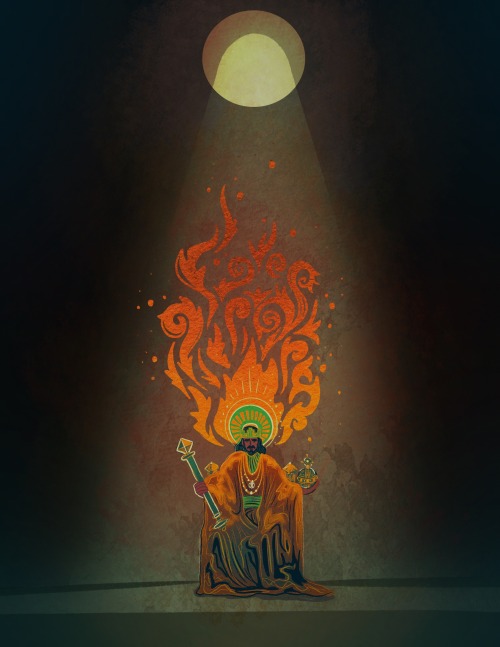
Guess what movie I just saw.
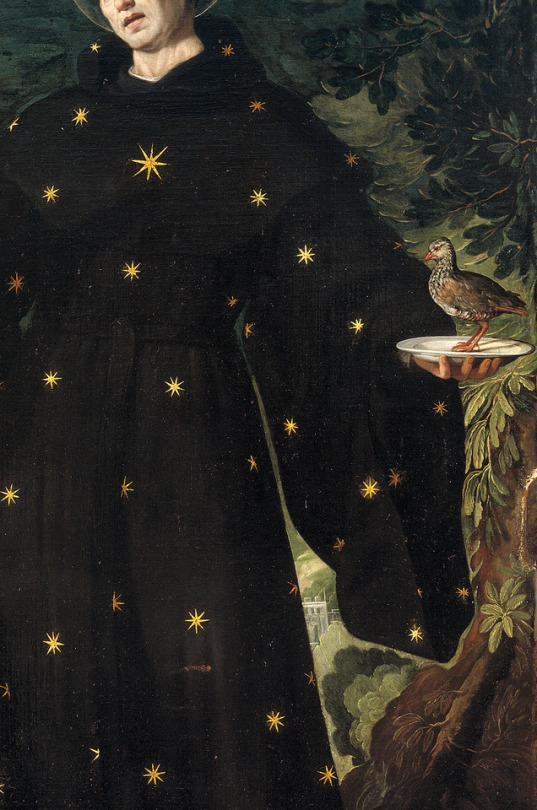
Nicolás de Tolentino (detail) by Juan Pantoja de la Cruz, 1601.
when mary shelley said “i am unstable, sometimes melancholy, and have been called on some occasions imperious; but i never did an ungenerous act in my life. i sympathise warmly with others, and have wasted my heart in their love”


SOUTHERN RIGHT WHALE CALVES ARE LITTLE MILK THIEVES
Drone footages made during the nursing season, off Encounter Bay, South Australia have revealed an unknown behaviour in southern right whales (Eubalaena australis), with some calves involved in direct and intentional movement to steal milk from other lactating mothers, with the intention to drink some delicious extra milk.
This phenomenon called allosuckling has potential benefits for the calf as it may gain extra milk to help it grow in size and strength, but it may be disadvantageous to the non-biological mother as she needs to provide milk to her own offspring. According to lead researcher of the study, whales have a capital breeding strategy, where during the nursing season the mother does not feed and is not able to replenish her lost energy reserves.
Allosuckling, the suckling of milk from a non-biological mother, occurs in some species of mammals, whoever, this is the first time is reported in baleen whale calves.
Gif description: A calf performing allosuckling, and the non-biological mother showing an evasive reaction, Sprogis & Christiansen, 2024.
reference (Open Access): Sprogis & Christiansen, 2024. Allosuckling in southern right whale calves. Mamm Biol
-
 yearsofsolitude liked this · 1 year ago
yearsofsolitude liked this · 1 year ago -
 neniloves liked this · 3 years ago
neniloves liked this · 3 years ago -
 pyropiano liked this · 3 years ago
pyropiano liked this · 3 years ago -
 teddybeardreaming liked this · 3 years ago
teddybeardreaming liked this · 3 years ago -
 melancholianarcissus reblogged this · 3 years ago
melancholianarcissus reblogged this · 3 years ago -
 swimmingprincessbouqet liked this · 3 years ago
swimmingprincessbouqet liked this · 3 years ago -
 scoirseroncn liked this · 3 years ago
scoirseroncn liked this · 3 years ago -
 studytana reblogged this · 3 years ago
studytana reblogged this · 3 years ago -
 katana-clone liked this · 3 years ago
katana-clone liked this · 3 years ago -
 helenisfair liked this · 3 years ago
helenisfair liked this · 3 years ago -
 ryesillustrates liked this · 3 years ago
ryesillustrates liked this · 3 years ago -
 engli-i-ish liked this · 3 years ago
engli-i-ish liked this · 3 years ago -
 frenchfilmelephant liked this · 3 years ago
frenchfilmelephant liked this · 3 years ago -
 katal0gue liked this · 3 years ago
katal0gue liked this · 3 years ago -
 fiftyshadesofgroovy liked this · 3 years ago
fiftyshadesofgroovy liked this · 3 years ago -
 thatsalintel liked this · 3 years ago
thatsalintel liked this · 3 years ago -
 opossum-kingdom liked this · 3 years ago
opossum-kingdom liked this · 3 years ago -
 maskoni liked this · 3 years ago
maskoni liked this · 3 years ago -
 polyphonic-prairies liked this · 3 years ago
polyphonic-prairies liked this · 3 years ago -
 i-swear-this-is-for-homework reblogged this · 3 years ago
i-swear-this-is-for-homework reblogged this · 3 years ago
